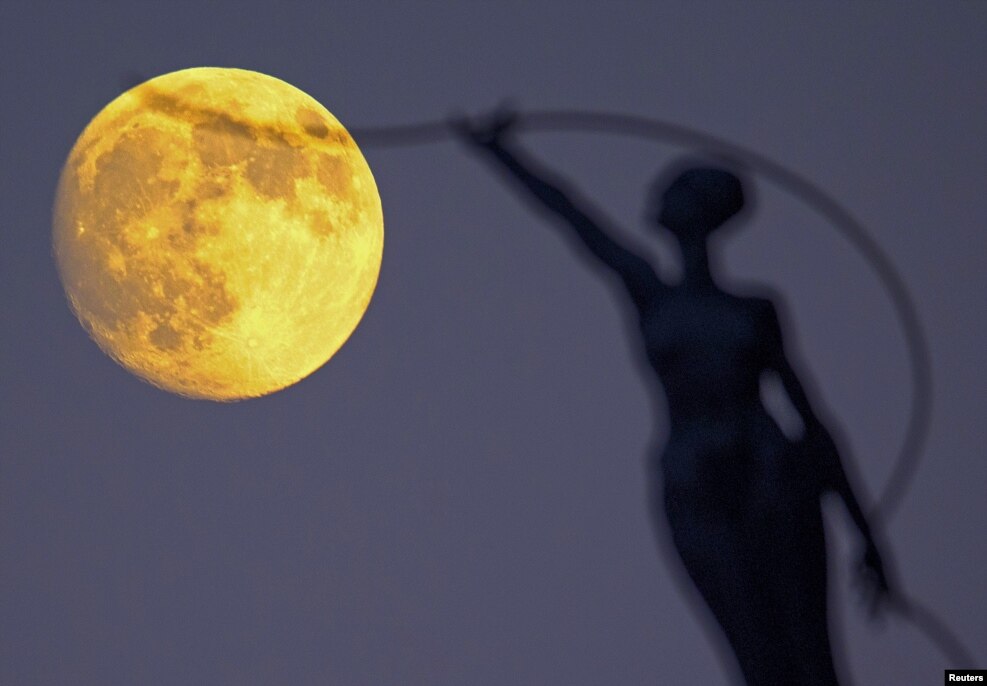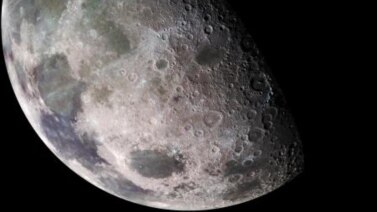
It is coming very soon. You can hear about it in a song performed by American singer Victoria Vox.
"Oooo, I'm waiting on a supermoon to come into view, on the horizon…”
Sky watchers will have a special treat Monday night. That is when a supermoon appears in the night sky.
So what is a supermoon?
It is a full moon that appears bigger and brighter than normal. The American space agency, NASA, says the full moon on Monday will be the closest full moon of the year. In fact, the moon has not been this close to Earth since 1948.
The moon's orbit around Earth is slightly elliptical - it does not move in an even circle. That means it sometimes moves closer to our planet. But other times it is farther away.
A supermoon is when the moon and Earth are closer than they usually are, if only by a small amount. But even that small distance can make the moon appear up to 14 percent larger and 30 percent brighter than a normal full moon.
Even if the skies are cloudy where you are on November 14th, the moon will still be very bright this weekend. The best time to see it is just before sunrise.
“I've been telling people to go out at night on either Sunday or Monday night to see the supermoon,” said Noah Petro, who works for NASA's Lunar Reconnaissance Orbiter mission. He said that the difference between Sunday night and Monday night will be very small, so either night will be good.
“Anytime after sunset should be fine” to see the moon, he said. “You don't have to stay up all night to see it, unless you really want to!”
The name supermoon is fairly new. It was the idea of astrologer Richard Nolle in 1979.
In the past, some people called a supermoon, a “mega beaver moon.” That name comes from a best-selling book, the Old Farmer's Almanac. It said the name was first used before the creation of the United States. It said that “for both the colonists and the Algonquin tribes, this was the time to set beaver traps before the swamps froze, to ensure a supply of warm winter furs.”
This will be is the second of three supermoons in recent months. If you miss this one, the next chance is on December 14.
The bad news about next month's supermoon is that its brightness will limit what we can see of another light show in the night sky -- the Geminid meteor shower. That is when as many as 100 or more shooting stars move fast across the night sky every hour.
The moon, however, will not be this close again until November 25, 2034.
But for now you can enjoy more of Victoria Vox's song, Supermoon.
I'm Anne Ball.
Matt Hilburn wrote this story for VOANews.com. Anne Ball adapted his report for Learning English. George Grow was the editor.
We want to hear from you. Write to us in the Comments Section and visit us on our Facebook page.
Words in This Story
elliptical - adj. shaped like a flattened circle, an oval
astrologer - n. a person who studies how the positions of the stars and movements of the planets have a supposed influence on events and on the lives and behavior of people
beaver - n. a small animal that has thick, brown fur and a wide, flat tail, that cuts down trees with its teeth, and that builds underwater houses … its fur is very warm and was used by people for coats in the winter
Algonquin - n. the name of one of the native American tribes in the U.S.
swamp - n. land that is always wet and often partly covered with water


